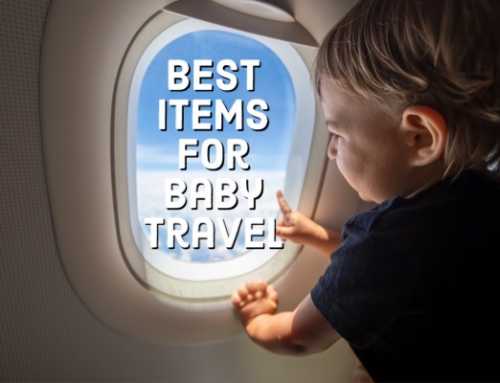This article is by Bianca from the awesome travel blog, Well Worth Living.
We spent 6 months traveling through Europe and Asia with our 7 year old and were truly surprised by some of the unexpected differences between traveling and living at home. I’m not talking about the obvious things like having to home school… more the differences you didn’t quite expect.
So before you pack your bags and choose long term travel over a family home, here are a few things to consider and expect.
Things that Weren’t a Problem
Finding Food
We thought healthy nutrition was going to be a problem. Our son was a pretty fussy eater back home. Fortunately the world is a weird and wonderful place and he discovered the most incredible foods in each and every country. From Nasi Lemak in Kuala Lumpur to delicious Thai Noodles in Chaing Mai, he absolutely loved it! Asia also has a limitless supply of incredibly delicious and affordable fruit, so the whole family will be well nourished.
Having the “Right” Clothing
As long as they’re warm when they need to be warm and cool when the need to be cool, clothing was honestly the least of our problems. We could easily have packed a quarter as much for him and been completely fine.
Sleeping Arrangements
We moved around very frequently and each apartment was very different. Thankfully, as long as we kept a pretty standard bedtime routine, where he slept really wasn’t an issue. He quickly got used to sleeping on daybeds, bunk beds and even the occasional papasan chair, as long as it was within ear-shot of where we slept.
With that out of the way, here’s what we found a little harder to deal with…
Language Does Matter
Our son is an extremely social child and loves to make friends. He would easily engage with kids on the playgrounds and they’d be besties in just minutes.
Unfortunately, in the Czech Republic, for example, children aren’t as “Westernized” as other European countries and the average child doesn’t speak English at all. He found it quite difficult in the Eastern European and Asian countries to communicate.
We would often watch him engage with other kids and it would work for a while, but fell apart when they start playing games that required some kind of understanding of rules. He definitely felt a little lonely and a bit like an outsider at first.
The solution: Facebook Expat groups! We were very lucky to discover many pockets of expat communities where he could play with American, Canadian, Australian and British children. This made life on the road 1000 times easier for him.
Education Is Important
If you’re considering home schooling, make sure you’re really up for it. It has the benefit of being one-on-one education and your individual attention makes a huge difference to traditional schooling back home.
But here’s the rub… when your child goes to a traditional school, he gets to see his friends each day, have play breaks, laugh about silly jokes and even commiserate about some “less fun” school tasks.
On the other hand, having to home-school in a foreign country, on his own, really sucked. He didn’t have kids around him doing the same work so he had nothing to compare it to. From his perspective, he was the only child in the world who had to do school work.
When you’re home-schooling, you’re the parent, the teacher, and the friends all rolled into one and you need to try your absolute best to make learning fun.
The Solution: Find other parents on expat groups and home-school together. Even if you’re not teaching the same subjects, just having other kids in his environment, makes all the difference.
Safety Really Matters
When my husband and I travelled alone, we could dart in-and-out of difficult or dangerous situations with some ease. I remember being caught in the “bad” side of Belize City and needing to ‘get out’ asap. A quick escape was possible.
Unfortunately, with kids, you’re slowed down a lot. If you get into any kind of trouble, you’re completely at the mercy of the situation. In some places like Turkey or even Thailand, we had some run-ins that were a lot scarier having a child with us.
At home, our son is free to ride around for hours on his bike. This sense of freedom is great for his personal development. The tricky thing when travelling is, you have to watch your child like a hawk. Everything is new and you can’t be sure it’s safe until you’ve been there a little while. Fortunately, with some ground rules in place, you can quickly adapt… and avoid loosing each other while getting on and off busy public transport. An experience you can definitely do without.
The Solution: Go somewhere safe. This may sound obvious, but if you go to safer countries, or even stay within the “safe zones” of more precarious places, your child has much more freedom to move around and explore, as opposed to feeling like he’s being “supervised”.
In Conclusion
There’s no way to know exactly how your child will react to long term travel. For the most part, it’s truly one of the most wonderful things any child can experience. Discovering different cultures and landscapes was as epic for him as it was for us.
You can be as prepared as possible, but will only truly know what works and what doesn’t when you’re there. Before you leave, start getting your child excited about the journey and explain that it might also come with some challenges. If they’re as adventurous as you, you’ll have no problem getting their childish enthusiasm on board.
















I am glad you mentioned there are some less safe places to travel to rather than trying to convince everyone everywhere is safe. There are some places (or areas) that are safer than others. I also like what you mentioned of homeschooling but implementing public school activities.